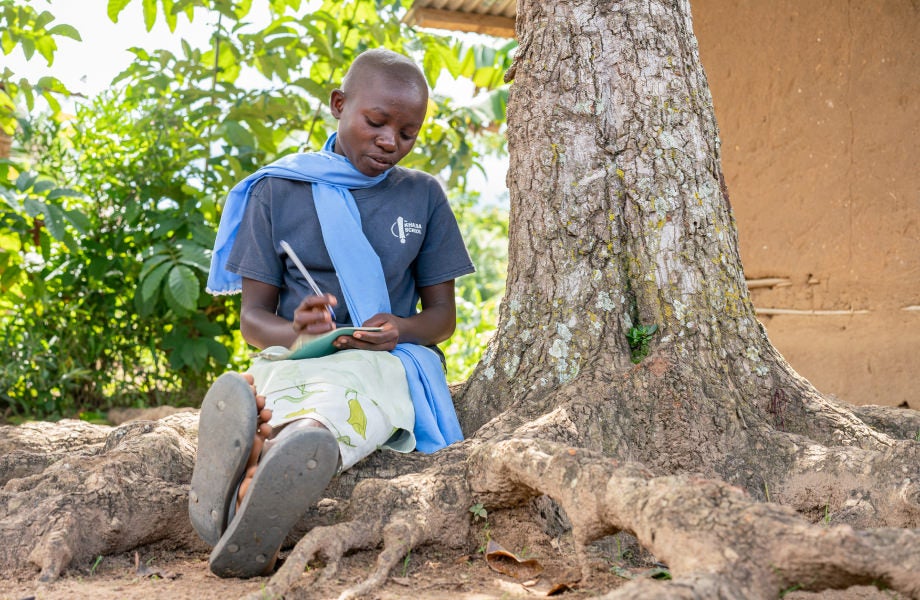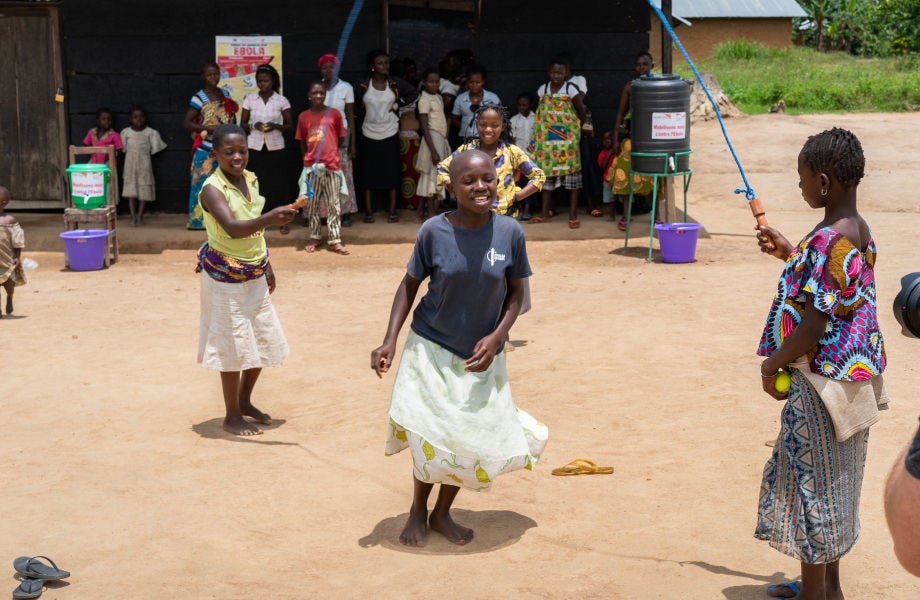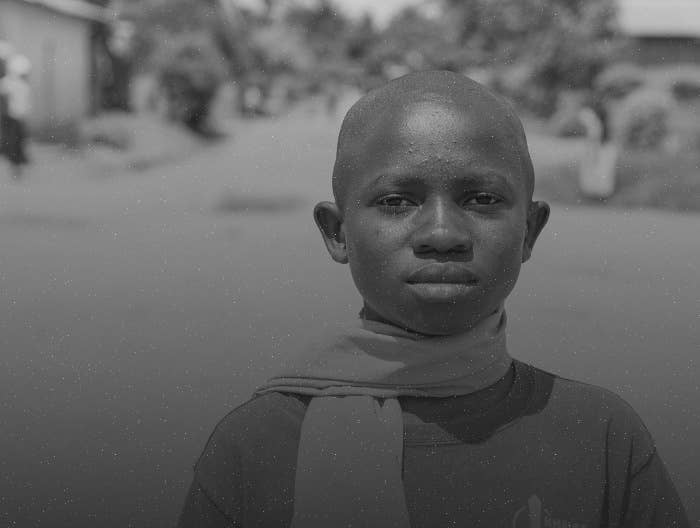Masika*, 12, was forced to flee her home in eastern Democratic Republic of Congo (DRC) after rebel forces murdered her parents. Masika shares her story in her own words.
“One day I walked out to the fields to join my father and mother who were picking beans. As I approached, I saw my father in the distance and heard him screaming. And I saw my mother sitting on the ground. There were rebels all around them. Our neighbour appeared and warned me to run because the rebels were about to kill my parents. So, I ran away.
Two months later I went to look for them and found their bones. We buried them and I went to live with my grandmother. Later, I went to live with a friend of my mother who has four children of her own.
She was very unfriendly with me at first, but things are getting a bit better. There is a lot of stigma against orphans of war. People feel that we are nothing without a family and that we don’t have rights. The other orphaned children here are treated the same way by people in the community.

Masika, 12, an orphan of war, studies outside a World Vision CFS in eastern DRC.
World Vision
The house I live in has multiple rooms, but I don’t sleep with the family. I sleep in the chicken coop with the chickens. I help by washing dishes, fetching water and watching over the other children.
Collecting water is the most difficult, the water source is only a few hundred metres away, but I have to fill and carry seven 20 litre jerry cans every day. They are very heavy, and the other children refuse to help me.
Sometimes I feel very badly, and I start crying. I can’t eat very well and when people ask me why I’m not eating I tell them that I am still thinking about my parents.
I really don’t know the reason for this violence. Most of the people living here are “wakimbizi" (refugees). They need help, to get decent houses to live in and to find food to eat.

Masika, 12, an orphan of war, plays outside a World Vision CFS in eastern DRC.
World Vision
I heard about this place, where they bring orphans so they can support us. I met with the school head mistress and she brought me here. Here everyone talks about their own story as we play together. Everyone gets a chance to share the tough things we have experienced. I feel less troubled; I feel so much better because of the activities we are doing.
Before, I couldn’t play with the other children because I was sorrowful thinking about my parents. But at this place I feel so much better.
I like this place so much because I can be with friends, to play with them and to dance with them and it makes me happy again. They teach us how to respect each other, to be polite, to follow the teacher and to live peacefully with others, and that is very good.
They also teach us to read, how to write and we get some vocational training so I can complete my education and get a job in the future. I need to be supported with my education, to complete it.
When I grow up, I want to be a school mistress. I also want to be a boss and have a lot of money. I would help my friends. I would help people using my money.
Masika is receiving psychosocial and educational support at a World Vision Child Friendly Space. World Vision research warns that 85 million additional vulnerable children, including refugees, are in immediate danger from physical, sexual and emotional violence within the next three months because of increased instability caused by COVID-19. These children face dangerous threats, but they have incredible strength and resiliency to overcome these dark challenges to survive, recover and build a new future. Learn how you can support children like Masika move from victim to survivor --- and from survivor to overcomer.
* name changed to protect her identity.
What can I do?
It’s easy to feel helpless in situations like this but rest assured… you, us, everyone, together, can help make life-changing impact. And we are!
Here are three different ways you can be a part of the change.
- 1
Donate
Every gift makes a difference. Our Childhood Rescue fund helps children living in the world’s most dangerous places.
Donate Now - 2
Share on Social Media
Raising awareness is vital. Help make people aware of the situation and the difference we can make, together.





